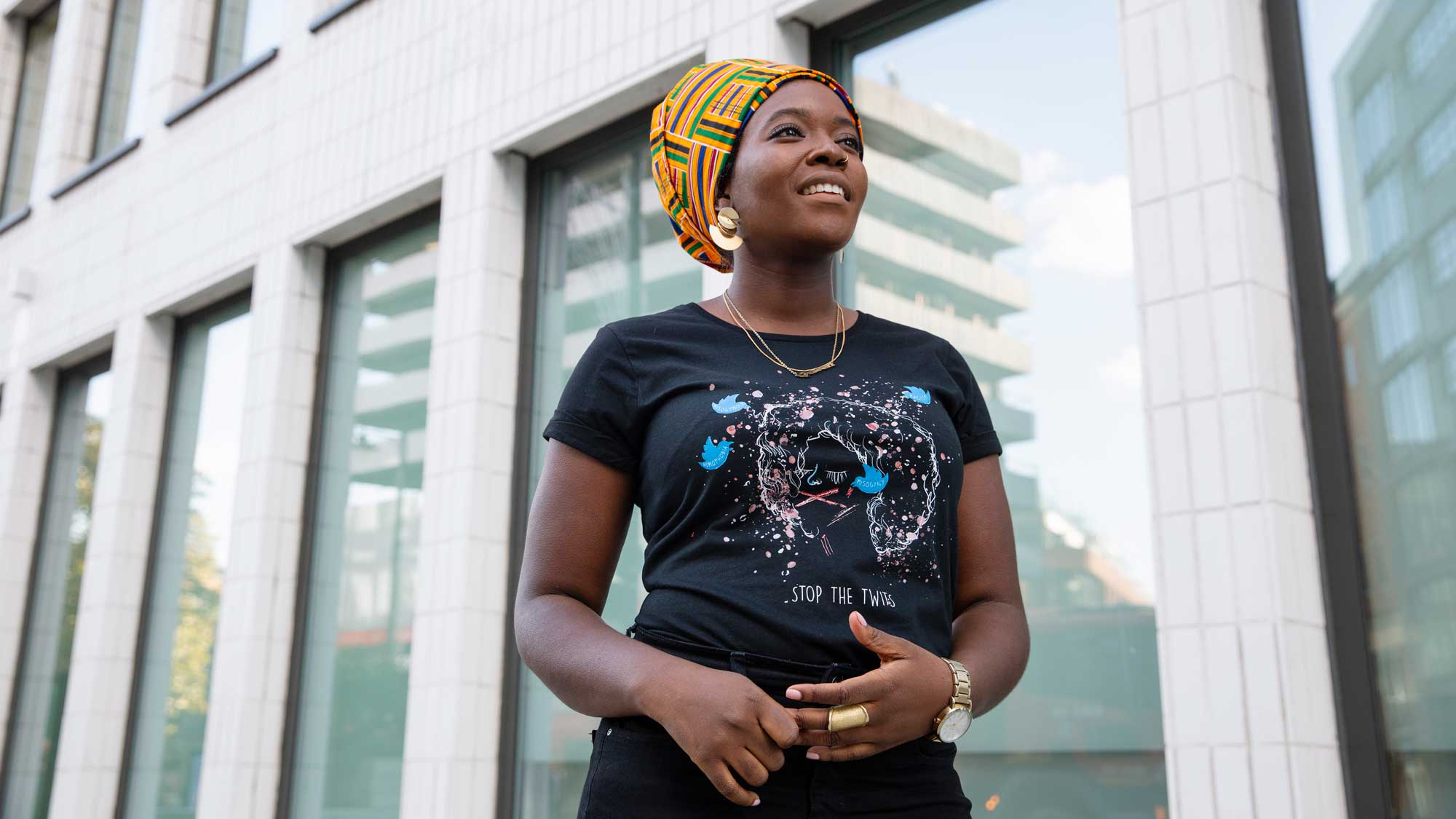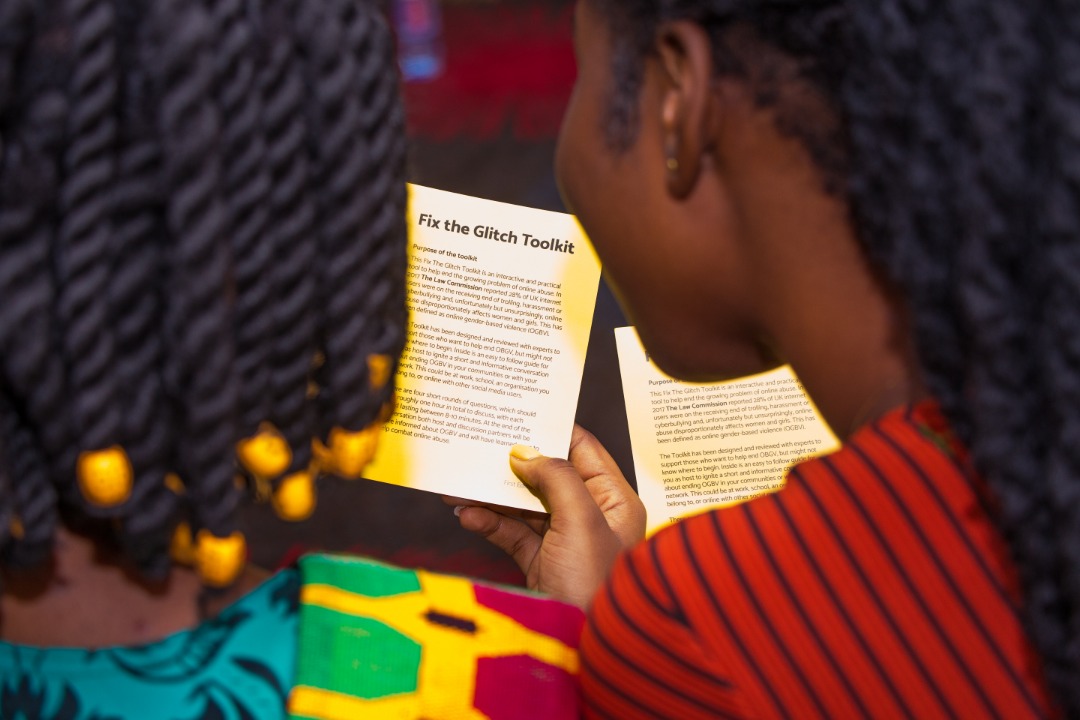Seyi Akiwowo: "Why it's crucial you're an online accomplice for Black women"
Seyi Akiwowo, Founder of Glitch, explains how to be an online accomplice to Black women and why a little can mean a lot in the face of online abuse


Seyi Akiwowo, Founder of Glitch, explains how to be an online accomplice to Black women and why a little can mean a lot in the face of online abuse
Here's a thing, do you know Black women are 84% more likely to receive abusive tweets? Or that since the beginning of the pandemic 50% of Black and minoritised women and non-binary people reported experiencing online abuse. Now, more than ever everyone needs to play their part as digital citizens and learn how to be an online accomplice to Black women. That's why, along with Twitter and ten other charities, Glitch launched the #StandUpToHate campaign, providing Twitter users with guidance to practice responsible online citizenship.
In the space of three years, Glitch has gained international acclaim for its work on digital issues, tackling online harms and abuse. As Glitch continues to push for systemic change from the government, social media companies and employers, it’s important we continue raising awareness of the individual actions that people can take to support those experiencing online abuse. Abuse of Black women and other similar trends was documented in our recent report The Ripple Effect: Covid-19 and the Epidemic of Online Abuse.

Without all of us playing our part, online abuse will only get worse as we spend more time online. We're encouraging thousands of our online community to take four small steps to help those facing online abuse.
Four ways to be an online accomplice to Black women
Everyone can really make a difference with these four simple steps:
* Reporting * Supporting * Replying * Amplifying
Because a little really does mean a lot. But those four steps are not the only actions allies can take. As part of Glitch's Autumn- Winter Programme, the new Fix The Glitch Toolkit 2.0 was launched. The kits are specifically created to give Black women confidence and knowledge on digital self care, defence and safety.
Part of being a digital citizen is being informed, and how you can help work towards a fairer and safe world for all. So, this Toolkit is also for those seeking to be an online ally to Black women. There's even a Glitch lunchtime workshop taking place on Friday 30th October, supporting Black women and allies keen to host conversations or workshops for their community or networks. It could be your friends, family, work colleagues or activist group.
Celebrity news, beauty, fashion advice, and fascinating features, delivered straight to your inbox!

Glitch’s The Ripple Effect report proved beyond doubt that the lockdown in March led to an increase in online abuse. Now, with further local lockdown measures announced, and the possibility of more coming over the next few weeks and months, we can’t allow this trajectory of Black and minoritised women suffering disproportionate levels of online abuse to continue. During Black History Month and beyond, we must continue working towards making the online space safe for all.
* Find out more about Glitch’s Autumn-Winter Programme with free workshops and resources now
Maria Coole is a contributing editor on Marie Claire.
Hello Marie Claire readers – you have reached your daily destination. I really hope you’re enjoying our reads and I'm very interested to know what you shared, liked and didn’t like (gah, it happens) by emailing me at: maria.coole@freelance.ti-media.com
But if you fancy finding out who you’re venting to then let me tell you I’m the one on the team that remembers the Spice Girls the first time round. I confidently predicted they’d be a one-hit wonder in the pages of Bliss magazine where I was deputy editor through the second half of the 90s. Having soundly killed any career ambitions in music journalism I’ve managed to keep myself in glow-boosting moisturisers and theatre tickets with a centuries-spanning career in journalism.
Yes, predating t’internet, when 'I’ll fax you' was grunted down a phone with a cord attached to it; when Glastonbury was still accessible by casually going under or over a flimsy fence; when gatecrashing a Foo Fighters aftershow party was easy-peasy-lemon-squeezy and tapping Dave Grohl on the shoulder was... oh sorry I like to ramble.
Originally born and bred in that there Welsh seaside town kindly given a new lease of life by Gavin & Stacey, I started out as a junior writer for the Girl Guides and eventually earned enough Brownie points to move on and have a blast as deputy editor of Bliss, New Woman and editor of People newspaper magazine. I was on the launch team of Look in 2007 - where I stuck around as deputy editor and acting editor for almost ten years - shaping a magazine and website at the forefront of body positivity, mental wellbeing and empowering features. More recently, I’ve been Closer executive editor, assistant editor at the Financial Times’s How To Spend It (yes thanks, no probs with that life skill) and now I’m making my inner fangirl’s dream come true by working on this agenda-setting brand, the one that inspired me to become a journalist when Marie Claire launched back in 1988.
I’m a theatre addict, lover of Marvel franchises, most hard cheeses, all types of trees, half-price Itsu, cats, Dr Who, cherry tomatoes, Curly-Wurly, cats, blueberries, cats, boiled eggs, cats, maxi dresses, cats, Adidas shelltops, cats and their kittens. I’ve never knowingly operated any household white goods and once served Ripples as a main course. And finally, always remember what the late great Nora Ephron said, ‘Everything is copy.’
